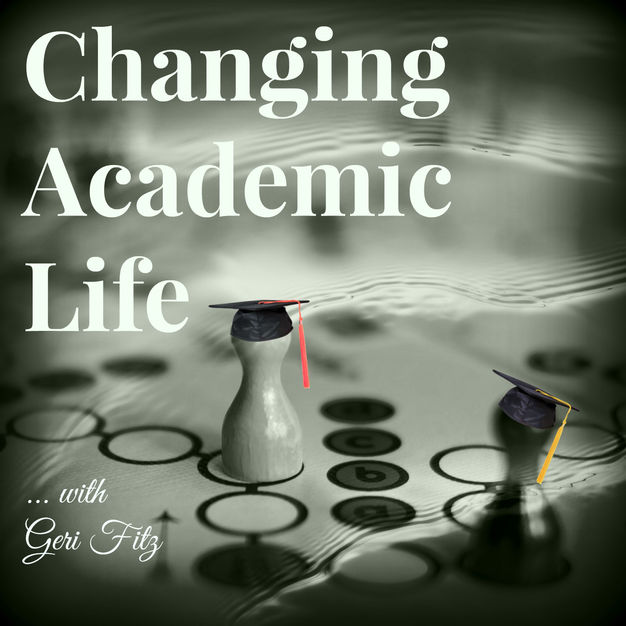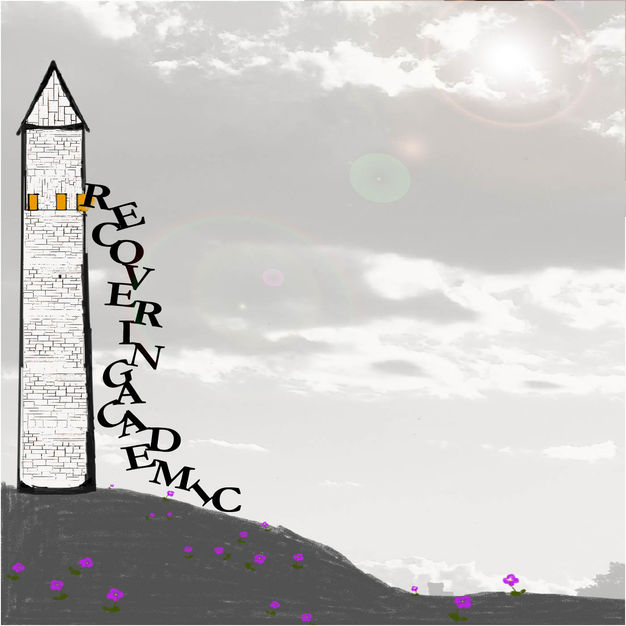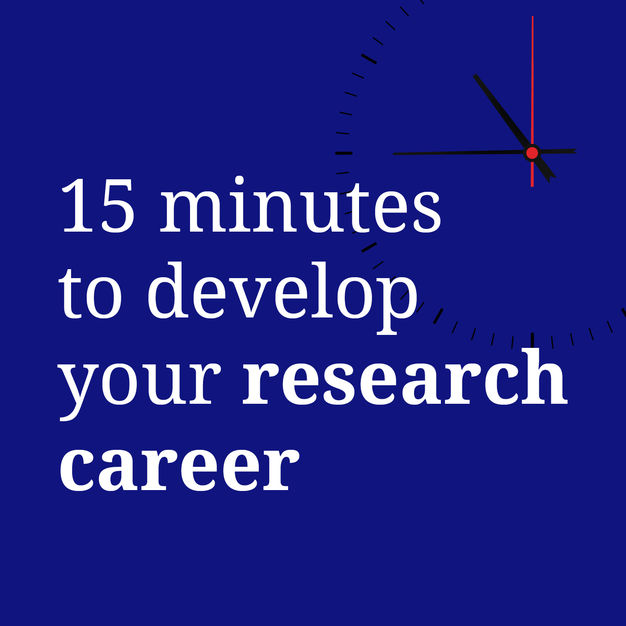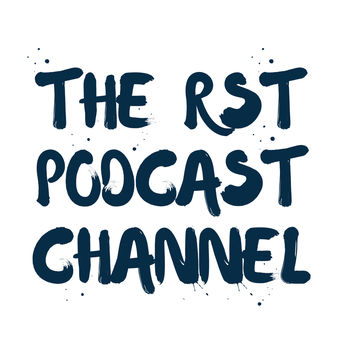
Changing Academic Life
Geraldine Fitzpatrick
Academic life is changing and many of us are drowning in increasing work demands. What are the choices each of us can make to change our own situations for the better? And can we change the academic game more generally? Academics and thought leaders share experiences, tips...
- 16 minutes 8 secondsRemembering Volkmar Pipek - on being curious, being you
Volkmar Pipek was a highly influential researcher from Uni of Siegen who sadly passed away in Jan 2024 after a long illness. This short episode draws from a written interview he gave to Mateusz Dolata on the occasion of his 2023 EUSSET-ISSI Lifetime Achievement Award. I read an extract where he shares his advice about becoming and being a researcher: Be curious. Be who you are. Be curious who you are. Wise advice for all of us.
Read the full interview with Volkmar Pipek
Interview conducted by Mateusz Dolata, University of Zurich
Text accompanying the EUSSET-ISSI Lifetime Achievement Award 2023 to Volkmar Pipek
EUSSET: European Society for Socially Embedded Technologies
ISSI: Institute for Social Informatics
Volkmar Pipek, University of Siegen and Volkmar’s publications
This podcast uses the following third-party services for analysis:
Chartable - https://chartable.com/privacy24 April 2024, 6:00 am - 1 hour 7 minutesLiam Bannon (Part 1) on a career outside the box
Liam Bannon is a Professor Emeritus and founder and director of the Interaction Design Centre at the University of Limerick in Ireland.
Liam has been a hugely influential thinker writer and researcher since the 1980s, along with various collaborators, in shaping work around technology and design.
Recorded in-person in 2017, he reflects on his interdisciplinary journey and contributions, covering areas such as AI, HCI, CSCW, human-centered design, and collaboration. Liam’s experiences exemplify the challenges and rewards of crafting a unique academic career largely outside the box, grounded in interdisciplinary collaboration and a commitment to improving human-technology interactions, while also highlighting the importance of personal fulfilment and being able to think broadly.
Related Links:
Liam at the Interaction Design Centre, Uni of Limerick
Some of the people & papers he mentions:
Zenon Pylyshyn, (1973). What the mind's eye tells the mind's brain: A critique of mental imagery. Psychological Bulletin, 80(1), 1–24.
H. Rudy Ramsey and Michael E Attwood (1979) Human Factors in Computer Systems: A Review of the Literature, Technical Report SAI-79-111DEN
James Jenkins, Uni of Minnesota
Don Norman, Human Centered Design, UCSD. See also https://jnd.org
Rob Kling Center for Social Informatics
Susanne Bødker, Aarhus Uni; see also our 2023 podcast conversation
Mike Cooley, Engineer Lucas Aerospace
Terry Winograd and Fernando Flores, Understanding Computers and Cognition, A New Foundation for Design, 1987, Addison-Wesley.
Bannon, L. & Bødker, S. (1991) Beyond the Interface: Encountering Artifacts in Use. Book Chapter in J.M. Carroll (Ed.) (1991) Designing Interaction: Psychology at the Human-Computer Interface, pp.227-253. (New York: Cambridge University Press) (See also an earlier version)
Bud Mehan, UCSD
Pelle Ehn, Morten Kyng and Participatory Design e.g., see this paper
Rank Xerox Cambridge EuroPARC e.g., see overview articles 'What is EuroPARC?' and 'Rank Xerox Cambridge EuroPARC'
Liam J. Bannon (2006) Forgetting as a feature, not a bug: the duality of memory and implications for ubiquitous computing, CoDesign, 2:1, 3-15
Liam J. Bannon (2012) Interactions
Schmidt, K., Bannon, L., Four characters in search of a context
Schmidt, K., Bannon, L. Taking CSCW seriously. Comput Supported Coop Work 1, 7–40 (1992).
The Google Scholar listing of all of Liam’s publications
This podcast uses the following third-party services for analysis:
Chartable - https://chartable.com/privacy10 April 2024, 6:00 am - 41 minutes 57 secondsJean Paul (Part 2) on leading virtual transdisciplinary teams and stakeholder engagement
Jean Paul is a senior scientist at the Medical University of Innsbruck. In part 2 of our conversation, Jean discusses her experience leading an impact-led transcdisciplinary research project focused on supporting families with mental health issues. She highlights the challenges of stakeholder engagement, distributed team management, and transdisciplinary research. Jean emphasizes the importance of community engagement, virtual team collaboration, and fostering diversity in academia. She also reflects on the skills she brings to this role and the importance of investing in the team set up from the very beginning.
Overview
[00:29] Introducing Part 2
[02:23] Recap from Part 1
[07:27] Working with stakeholders
[13:35] Leading a distributed international interdisciplinay project team
[14:59] Learning leadership from diverse experiences
[18:25] The transferrable skills – listening and learning
[20:04] Supporting diverse career paths
[25:16] Insights for parents in academia
[29:22] Leadership, organisational design and virtual team management
[34:33] Making virtual collaboration work
[39:08] Future directions and reflections
[41:57] End
Related links:
Ludwig Boltzmann Institute/Gesellschaft
The sandpit-funded project – The Village Project
The Healthy Minds project
Dr Ghislaine Caulat – consultant on virtual leadership development
Simon Martin – consultant for their organisational design in a transdisciplinary project with stakeholder involvement
Project Design principles:
The design principles that came out of the oganisational design workshops:
- Effectively coordinate and involve a wide (but manageable!) network of stakeholders
- Be clear on expectations, results and deliverables within the team
- Keep momentum, trust and energy going across the project timeline for the core team and wider stakeholders
- Make sure that the perspectives of people with lived experience are heard clearly throughout the project (capturing the voices of people impacted by perinatal mental illness and those who are treating and working with the affected person and their families)
- Enact high ethical standards in our research (especially when listening to personal stories of mental illness and challenges)
- Demonstrate the value of interdisciplinary research partnerships with stakeholders, and challenge the landscape of traditional research and methods
- Effectively lobby and influence (local and national policy makers), and raise awareness in society / politics through making our topics and results visible.
This podcast uses the following third-party services for analysis:
Chartable - https://chartable.com/privacy27 March 2024, 2:28 pm - 57 minutes 48 secondsJean Paul (Part 1) on Sandpit funding & impact-focussed research
Jean Paul is a Senior Scientist at the Medical University of Innsbruck in Austria. Jean discusses her involvement in a unique research funding process called a sandpit or an ideas factory. Having then taken on the leadership of the project, she provides insights into the challenges and benefits of transdisciplinary research, stakeholder engagement, and arguing for their impact-focused approach. Jean also shares her academic background in social science, health and genomics research work in Australia.
Overview:
[00:29] Introduction
[03:03] Jean's PhD, Post-Doc Journey & Backup Plan
[11:23] From Australia to Austria: Applying for research funding sandpit
[18:00] The Sandpit Experience
[27:47] Getting Funded, Becoming a Team
[32:08] Leading the Project and Ongoing Project Support
[40:20] Transdisciplinary Research
[48:29] Wrapping up Part 1
[49:36] More on Jean's PhD and Post Doc Projects
[56:40] Final Wrapping Up
[57:47] End
Related links:
Ludwig Boltzmann Institute/Gesellschaft
The sandpit-funded project – The Village Project
This podcast uses the following third-party services for analysis:
Chartable - https://chartable.com/privacy13 March 2024, 6:00 am - 30 minutes 53 secondsFunding & Research Culture (podcast extract)
This episode is an edited extract from a ‘Beyond Phrenology’ podcast episode where Dr Madhur Mangalam chatted with me about the impacts of research funding challenges on academic culture and individual well-being. The conversation addresses the need for a shift towards more supportive and diverse cultures, the complexities of academic career paths, and the importance of leadership, mentorship and job crafting. We also discuss the implications of international academic norms on individual career choices.
Overview:
[00:00:43] Research Funding Challenges and the Unsustainability of Current Models
[00:04:57] Promoting Emotional Intelligence and Leadership in Academia
[00:15:14] Navigating Career Paths Across Contexts
[00:24:38] On Privileged Positions and Playing the Game
[00:29:02] Wrapping up
[00:30:53] End
Related Links:
Madhur Mangalam, University of Nebraska at Omaha
Daniel Goleman – Emotional Intelligence
CAL99 episode: On research identity, meaningful work and funding
TEDx talk from 2016: The craziness of research funding. It costs us all.
Online Academic Leadership Development Course – sign up by March 7 2024!
This podcast uses the following third-party services for analysis:
Chartable - https://chartable.com/privacy28 February 2024, 7:18 pm - 19 minutes 45 secondsCelebrating 100!
Taking this time to celebrate CAL100 – the 100th episode for the Changing Academic Life podcast series (actually 109th episode if we count the nine related work episodes) and thanks to all the people who have been part of making it happen.
To update and correct the information about Dr Paddy Barrett who inspired this podcast:
His original podcast was called 'The Doctor Paradox'. He is a preventive cardiologist not an anaesthetist as I stated. And he is now working in Ireland not the US!
This podcast uses the following third-party services for analysis:
Chartable - https://chartable.com/privacy8 February 2024, 6:00 am - 26 minutes 56 secondsOn research identity, meaningful work and funding (solo)
Triggered by a comment from Katta Spiel in an earlier podcast, in this solo episode I explore the tensions between the autonomy and freedom we have to shape our research identities and do meaningful work, and the systemic constraints from funding and promotion opportunities. The tensions particularly arise when research interests don’t align well with institutional expectations or funding trends. I explore various ways to navigate these tensions, such as, adjusting research focus to align with strategic priorities, reframing research proposals while keeping the core agenda unchanged, or continuing passion projects outside of formal funded frameworks. I also reflect on potential trade-offs and the importance of maintaining personal connection and motivation in our research work. At the end I suggest some strategies for self-reflection and staying in tune with what 'lights you up' as a researcher.
This episode also connects with prior podcast guests Mark Reed and Stuart Reeves.
Overview:
00:29 Introduction and Reflection on Academic Freedom
01:54 Replay from Katta Spiel Part 1
02:37 Mark Reed's principle for engagement and impact
05:22 The Tension Between Personal Values, Identity and Systemic Expectations
07:05 The Reality of Funding Proposals and Strategic Game
08:40 The Impact of Funding Conditions on Research
10:27 The Dilemma of Playing the Funding Game
13:08 Choices for How to Play the Game
19:59 Choosing Not to Play the Game
21:54 Reframing Research Identity
26:55 End
Related links:
Mark Reed, What is good practice engagement and impact? Dec 5 2023
This podcast uses the following third-party services for analysis:
Chartable - https://chartable.com/privacy24 January 2024, 6:00 am - 38 minutes 6 secondsKatta Spiel (Part 2) on neurodivergence & different ways of being and knowing
Dr Katta Spiel is an Assistant Professor at TU Wien, a recent ERC Starting Grant recipient, and a good colleague of mine. In part two of our conversation, Katta discusses being neurodivergent, and experiences with ADHD, and being an activist for change with an example of how gender is dealt with in research, and about 'epistemic plurality and the importance of making space for different ways of being and knowing. They conclude by advocating for respectful curiosity about individual experiences and allowing others space to perform their best work. They also argue for a lab culture where personal needs can be discussed and respected, suggesting this encourages more open dialogue and a supportive environment.
This conversation picks up from Part one where Katta shared their experiences on topics like career uncertainty, proposal rejections, coming out as queer, chronic health issues, being successful, and notions of normativity.
Overview:
[00:00:00] Introduction
[00:01:56] Personal Journey with Neurodivergence
[00:06:42] Strategies for Navigating Neurodivergence
[00:10:05] Dealing with a world not made for Neurodivergence
[00:15:39] Creating a Supportive Environment for Neurodivergence
[00:20:12] The Intersection of Neurodivergence and Activism
[00:26:19] Embracing different ways of being and knowing
[00:33:27] Final Thoughts on Neurodivergence and Inclusivity
[00:35:44] My final reflections
[00:38:06] End
Related links:
Katta's personal web page, TU Wien web page, LinkedIn page, and announcement about their ERC Starting Grant
Gender paper: Katta Spiel, Oliver L. Haimson, and Danielle Lottridge. 2019. How to do better with gender on surveys: a guide for HCI researchers. interactions 26, 4 (July-August 2019), 62–65. https://doi.org/10.1145/3338283
Hanne de Jaegher https://hannedejaegher.net
This podcast uses the following third-party services for analysis:
Chartable - https://chartable.com/privacy10 January 2024, 6:00 am - 13 minutes 26 secondsReflecting on 2023
In this short episode I reflect on the podcast season so far and on my own year of transitions. And I offer some prompt questions to help us reflect on what we have achieved and learnt this past year and encourage us to take some time to savour and celebrate it.
Overview:
00:05 Introduction
01:32 Podcast highlights
05:50 Transitioning to a new phase
7:35 Reflection prompts
10:17 Gratitude & looking forward
13:26 End
This podcast uses the following third-party services for analysis:
Chartable - https://chartable.com/privacy22 December 2023, 2:13 pm - 43 minutes 24 secondsKatta Spiel (Part 1) on career uncertainties, gender identity and health issues
Dr Katta Spiel is an Assistant Professor at TU Wien, a recent ERC Starting Grant recipient, and a good colleague of mine.
In the first part of this two-part conversation Katta shares their experiences on a range of topics like career uncertainty, rejection of proposals, coming out as queer, having a formal gender change, dealing with chronic health issues, and being successful in receiving a prestigious research council grant. Dr. Spiel's struggles and successes reflect their unyielding effort to change academic life for the better. An emphasis is also placed on the importance of authenticity and uncompromised approach when applying for grants. Part two of the conversation with Katta will delve deeper into the topic of neurodivergence and their ADHD experiences.
Overview:
0:00 Introduction
02:42 Navigating Identity and Academia
07:06 Exploring Alternative Career Paths
09:37 The Journey to Recognition and Success
10:34 Challenges and Triumphs in Grant Applications
23:07 Understanding the Difference Between Access and Accessibility
25:48 Personal Journey of Gender Identity and Health
33:58 Experiences with Chronic Health Issues
38:10 The Impact of Body Shape on Medical Treatment
40:16 The Role of Technology in Access and Inclusion
43:23 End
Related Links:
Katta's personal web page, TU Wien web page, LinkedIn page, and announcement about their ERC Starting Grant
People: Raja Kushalnager, Christian Vogler , Abraham Glasser
This podcast uses the following third-party services for analysis:
Chartable - https://chartable.com/privacy13 December 2023, 6:00 am - 5 minutes 26 secondsRevisiting Irina part 2
There were some technical hiccups in Part 2 of my conversation with Irina Shklovski, making the original audio I released very choppy (a lesson in not relying on smart tools!). I’ve uploaded new audio version that is much easier to listen to and doesn't chop off words. So this is an encouragement to you to listen to this now as it is such an important raw honest conversation and Irina shares so many useful ideas about coming back from burnout and learning to be enough, do enough. I include a clip from that conversation as a teaser.
Overview:
00:00 Intro
00:29 Addressing Technical Issues on Irina Part 2
01:52 Revisiting Irina's Conversation
02:35 Snippet from Irina's Conversation
04:13 Encouragement to Listen to Part Two
04:30 Outro
05:25 End
Episode: Irina Shklovski Part 2
This podcast uses the following third-party services for analysis:
Chartable - https://chartable.com/privacy29 November 2023, 6:00 am - More Episodes? Get the App
You've Got This | Tips & Strategies for Meaningful Productivity and Alignment in Work and Life
 Recovering Academic
Recovering Academic
 15 minutes to develop your research career
15 minutes to develop your research career
You've Got This | Tips & Strategies for Meaningful Productivity and Alignment in Work and Life
 The Radical Self-Trust Podcast Channel | Tips & Strategies for Meaningful Productivity and Alignment in Work and Life
The Radical Self-Trust Podcast Channel | Tips & Strategies for Meaningful Productivity and Alignment in Work and Life
Your feedback is valuable to us. Should you encounter any bugs, glitches, lack of functionality or other problems, please email us on [email protected] or join Moon.FM Telegram Group where you can talk directly to the dev team who are happy to answer any queries.